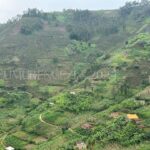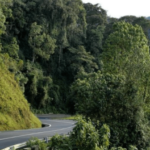Over 2.8 billion people across the world still use traditional cooking fuels including charcoal and firewood which contribute to carbon emissions, and result in devastating effects to the environment and climate change.
Rwanda is among countries with segments of the population using traditional cooking fuels. Figures from the Ministry of Environment indicate that 79.9% of the population depends on charcoal and wood as a source of cooking fuels and among the rural populations those using wood is over 90%.
The Ministry also indicates that Rwanda needs at least over US$1.37 billion by 2030 to achieve the target of reducing charcoal and firewood use from 83 percent of 2019 to 42 percent of population.
The government says that the target can only be achieved through collaboration with members of the private sector and donors.
- Advertisement -
Apart from their effects on the environment, some parts of Rwanda still struggle to access charcoal and firewood as the sources of fuel depending on their topography and the fact that there has been significant deforestation over the years making wood fuel scarce.
The majority of such areas are from Eastern Province, mainly in the districts of Ngoma, Bugesera and Rwamagana.
The issue has been also pointed out by the Governor of Eastern Province, Emmanuel Gasana who revealed that residents sometimes use dry weeds to cook food.
“When it comes to cooking fuels, our province understands it easily because residents in districts including Ngoma, Rwamagana and Bugesera are sometimes hit hard and use dry weeds as an alternative for cooking fuel,” he said.
Residents also explain that they struggle to prepare food for those with no woodlots as they spend a long time roaming around hills to collect wood sticks.
Ernestine Umutesi is a mother of four residing in Mwulire Cell, Rwamagana District.
She revealed that they hardly get cooking fuels as her family has no woodlot.
This pushed parents and children to roam around hills and bushes to be able to prepare food because they cannot cover the cost for a sack of charcoal usually sold between Rwf8000 and Rwf10000.
“Apart from charcoals, firewood bought at Rwf500 is used once. This highlights how getting cooking fuels is a serious problem,” said Umutesi.
Other residents explain that those with means to buy a sack of charcoal cannot use it for more than two weeks.
Interventions of Tubeho Neza
In a bid to cut expenses, reduce CO2 emissions and save forestry, the ‘Tubeho Neza’ (Live Well) project distributes energy-efficient cooking stoves which rely on wood but in much smaller quantities. It cuts wood use by 71%, and on project completion, will save 64km2 of forestry every year.
The project is run by DelAgua and is committed to uplift people’s livelihoods through access to climate and health friendly cooking stoves. The project specifically focusses on rural communities. DelAgua provides the stove free of charge, as such a high performing stove is unaffordable for the rural poor. Even subsidized, less effective stoves are out of their reach. Tubeho Neza is allowing those most in need and previously denied clean cooking, access to the best quality rocket stove available with all the health and environmental benefits it delivers.
In collaboration with the Government of Rwanda, the organization started distributing energy-efficient cooking stoves in 2012 with the target of increasing the number from current 1 million to 2.3 million stoves by 2024,one for every rural household.
On the celebration of the project’s 10th anniversary on Wednesday, October 26 in Mwulire Sector of Rwamagana District, DelAgua donated the 1 millionth stove, marking a milestone in their emission reduction model.
The donation is meant to eliminate the use of open firewood stoves or three stone stoves mostly used in rural areas . The concept and study of the environment friendly stove was designed by DelAgua to perfectly suit the rural families and is manufactured by Burn in Kenya.
Neil McDougall, the Chairman of DelAgua says that the stove’s design and performance will contribute to improved livelihoods of people in rural areas.
“We commissioned studies in collaboration with the London School of Hygiene and Tropical Medicine. It was observed that the stove can reduce children’s deaths by 47%. It also reduces smoke as it has the capacity to burn wood cleanly and with little ash compared to three stone stoves. Also, the stove saves firewood and can reduce the use of wood sticks from ten to three. This reduces the money spent on firewood or the time spent to collect them,” he said.
Neil McDougal explained that the multi-million project is promising to contribute to the reduction of emissions and improve beneficiaries’ livelihoods as well.
Exemption of taxes
The Minister of Environment, Dr. Jeanne d’Arc Mujawamariya said that Tubeho Neza is the largest project all over the world aimed at distributing environment friendly energy efficient cooking stoves.
“In partnership with the Government of Rwanda, DelAgua initiated the Tubeho Neza project, which is the largest across the world. Today, we are halfway to our target,” she noted.
Dr. Mujawamariya revealed that the government exonerated taxes to make the exercise possible.
The stove donated for free is valued at Rwf80,000 including the lifelong education, support and service programme that is provided to every family alongside the stove.
Such is the effectiveness of the programme, independent audits show that 99% of the stoves given to beneficiaries are still in daily use.
Chantal Muhongerwa is among beneficiaries of the stoves who previously used three stone fires.
The woman explained that she would catch respiratory or eye complications due to the use of traditional fire.
Today, Muhongerwa has a different story to tell as her health conditions have improved and her home is always clean, thanks to the clean cooking stove received eight years ago which also reduced time spent in the kitchen.
“Today, I spend a few minutes cooking food and get time for rest. I save the money previously spent on large quantities of wood in a saving group to diversify sources of income. Before, I would use a log bought at Rwf2000 one day but a small amount of wood bought at Rwf500 can cook food the whole day using the energy-efficient stove. We are thankful for the great support,” she said.
Muhongerwa also revealed that the time she used to spend cooking beans has reduced from four hours to 1 hour and 40 minutes.









